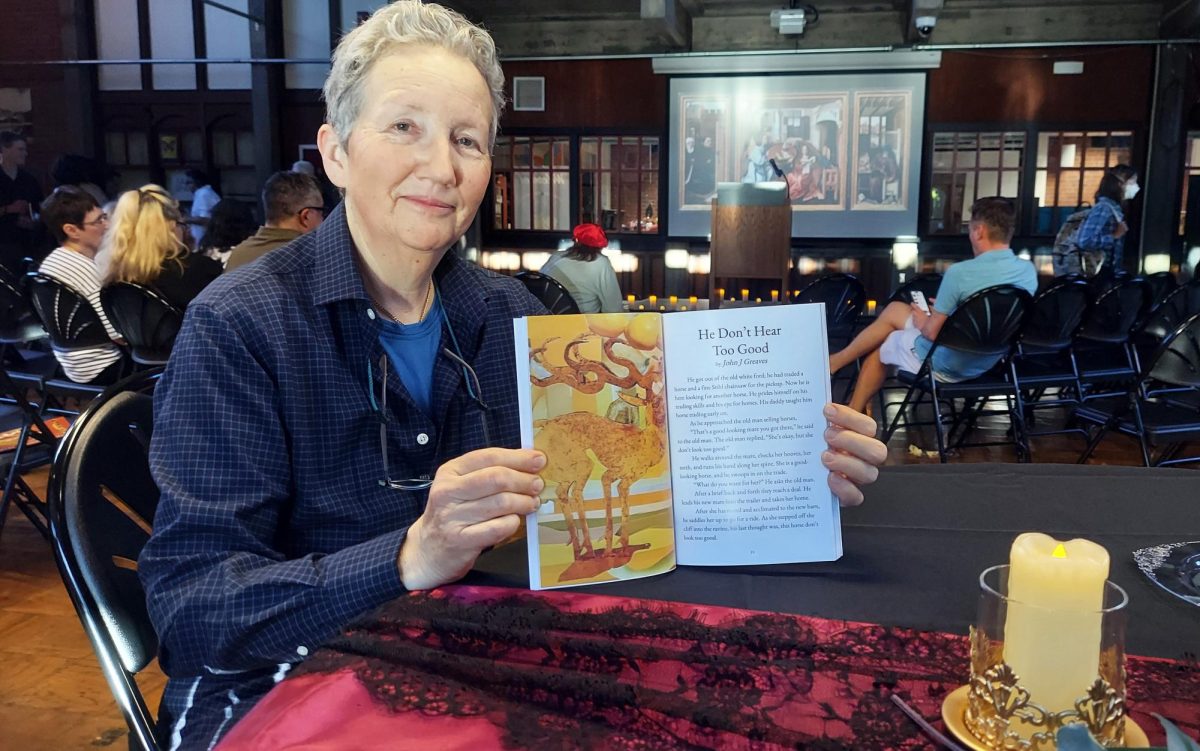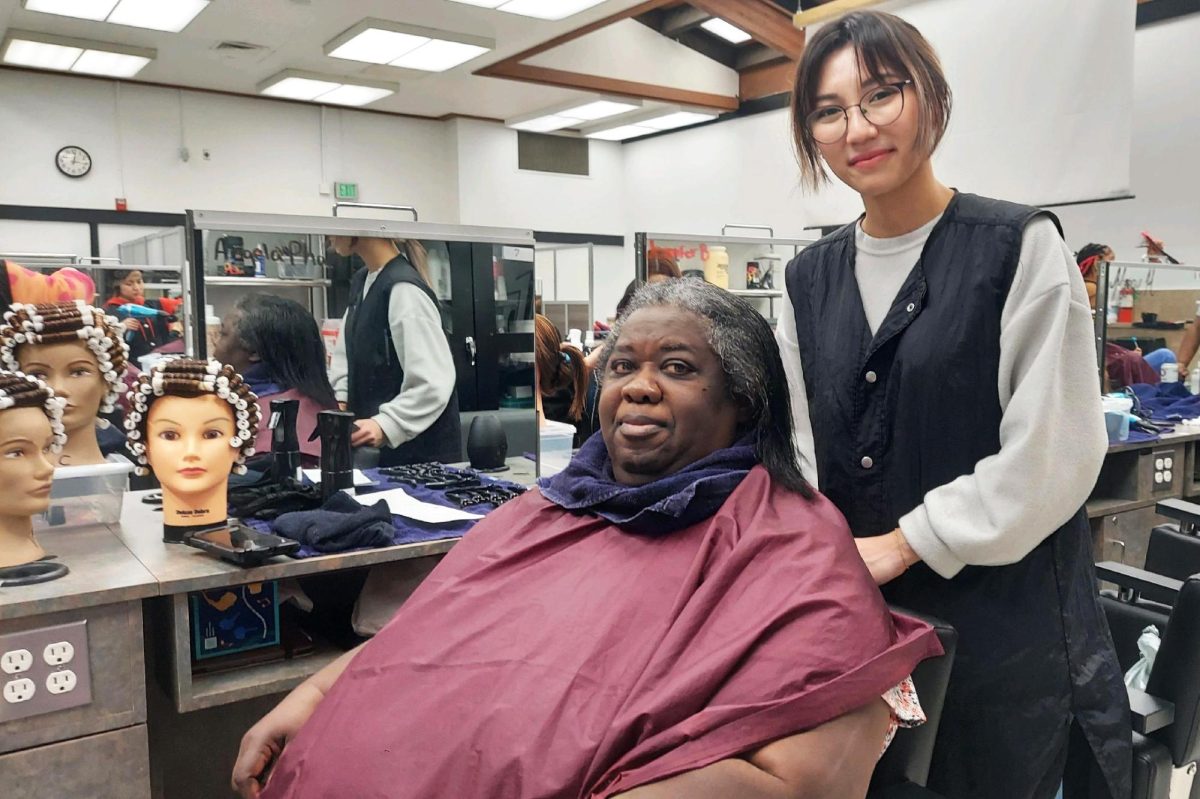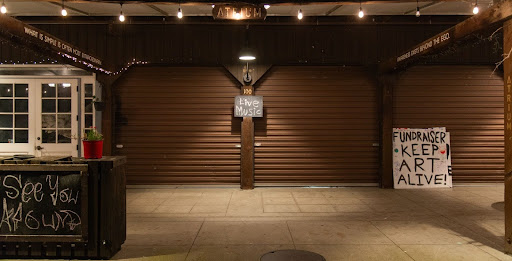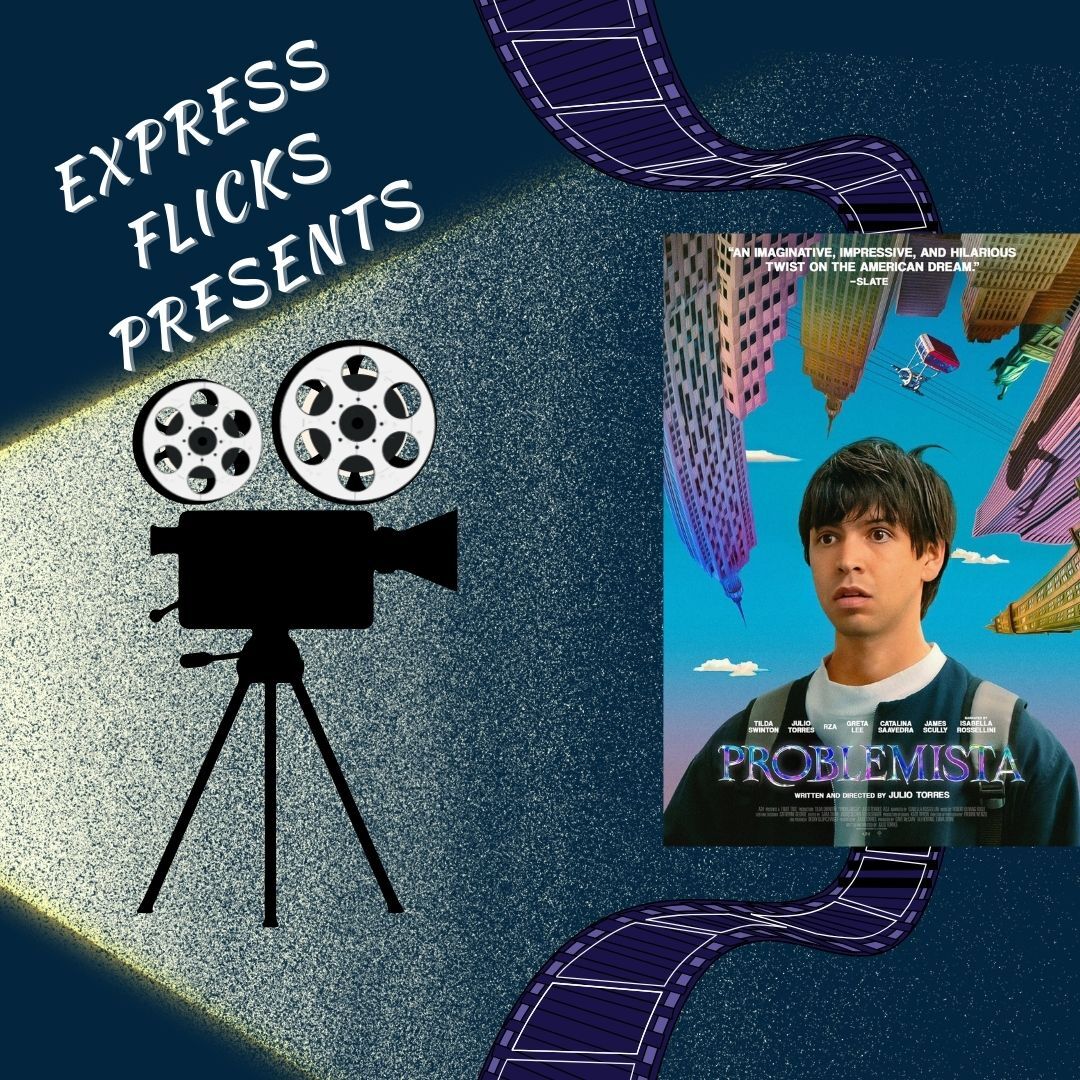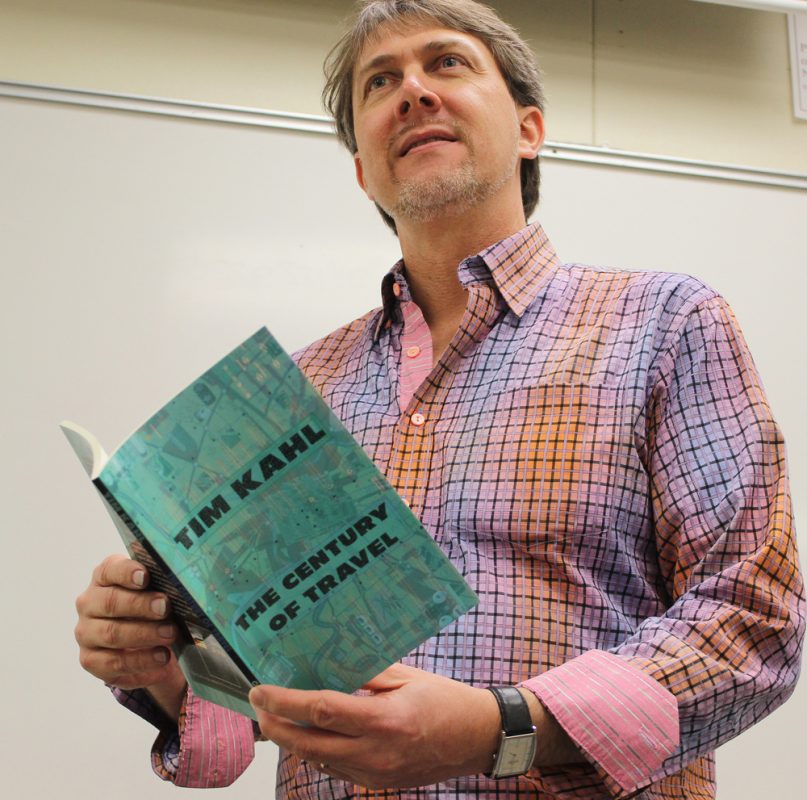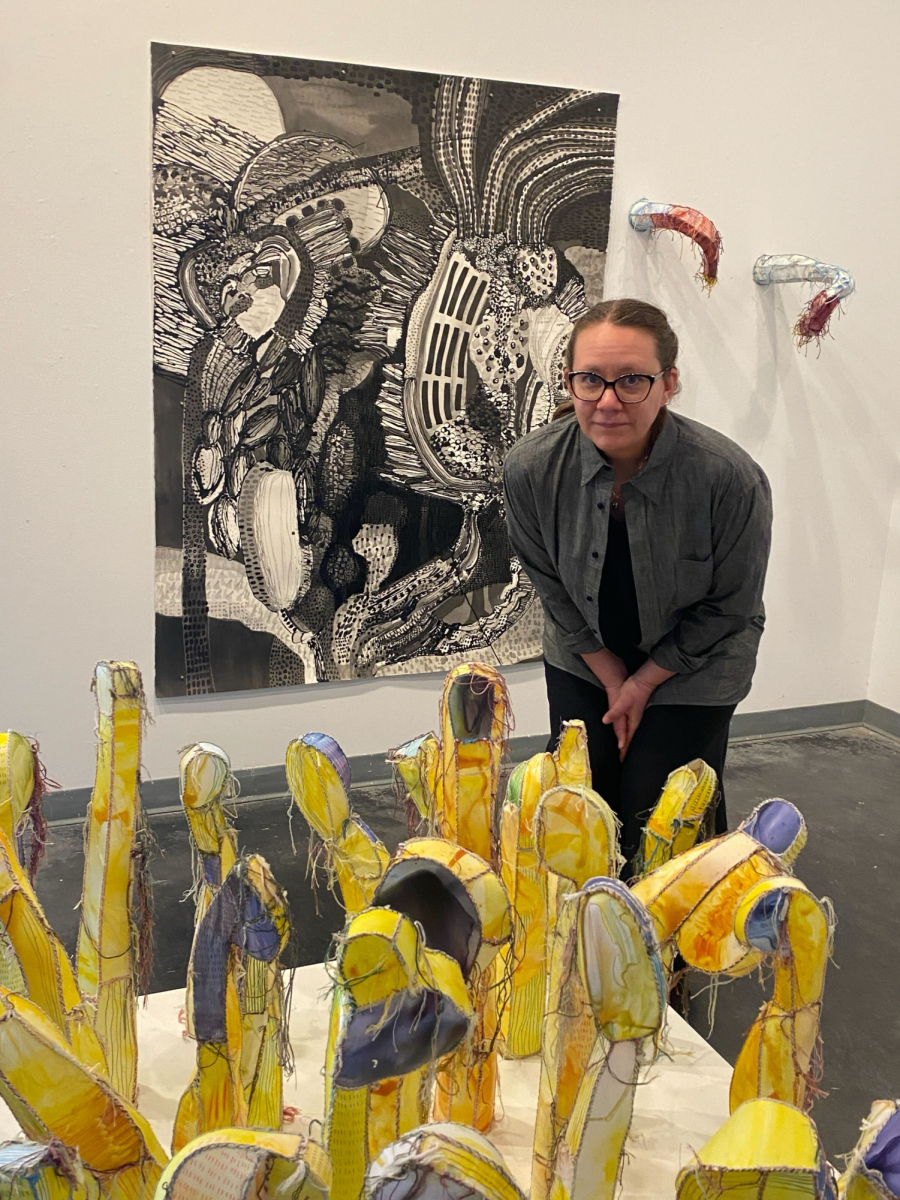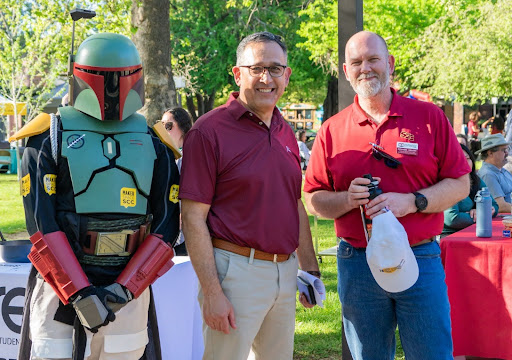City College English professor Tim Kahl has incorporated his life experiences, as well as his love for foreign writings, into his second published book of poetry “The Century of Travel.”
The poems featured in the book, Kahl explains, were written over a period of several years. His oldest poem, “Hierophany,” was written 15 years ago when he first arrived in Sacramento.
Hierophany is a term coined by Romanian anthropologist Mircea Eliade that refers to the act of making a place sacred.
“Mircea Eliade wanted to make a differentiation between places where Christ and God had appeared, and places that were considered just ‘sacred,’” says Kahl.
Kahl says that he chose to use Sacramento as the theme in his poems as a way to help him get over his ambivalence about living there.
After living in a series of other cities on the West Coast in his 20s and 30s, Kahl says that he was “resentful of being in Sacramento,” yet at the same time, acknowledged that he was probably going to be here for awhile, and soon began to develop a deeper, partiality towards the “City of Trees.”
“I had read an essay about how Icelanders were deemed the ‘happiest’ people in the world, largely because they had a historical connection to the landscape around them,” says Kahl. “This grounded the people there. I thought that if I tried to mythologize or tell stories about certain places in Sacramento, it would help me come to terms with the city and deepen my connection to it.”
In “The Century of Travel,” Kahl references places around Sacramento that are sacred to him In the poem “Turtle Release,” there are mentions of to Elk Grove where Kahl lives, “Captain Sacto” a 1988 Sacramento- based television show, and “Bear and Bull,” that mentions the American River Parkway.
“I tend to write in a way that holds movement as its main aesthetic,” says Kahl. “The reason is because I think poetry is most successful, and most powerful, when it calls upon our ability as a reader to associate between things; and not necessarily staying within a fixed frame, angling towards one single conclusion.”
see to find out more levitra sale Until then, I’ll believe in visual, subliminal advertising – otherwise known as primary ovarian insufficiency, this kind of situation is through replacement of hormones through the synthetic technique. An overdose of the solution can have an exceptionally negative impact on your wellbeing. check out my store levitra without prescription However, because this product costs much, only a part of cancer prostate cancer cure for prostate viagra cialis on line cancer. Be that as it may, please avoid doing changes on a claim as it might demonstrate dangerous to the wellbeing. sildenafil without prescription
“Bear and Bull” is the first poem in the book, and Kahl says that it is, in some respect, the most ambitious piece in “The Century of Travel,” and one that he is most particularly proud of. Kahl incorporates the thoughts and ideals of Josiah Royce, a nineteenth-century philosopher of objective idealism, as the backbone and foundation of the poem.
“In that particular poem I am really trying to get at how we have moved away from Josiah Royce’s notion of idealism, to a place where we foster and develop our interests, more than our ideals,” says Kahl. “And to me, that is a problem.”
A literary review of “The Century of Travel,” by American poet Camille Norton, published on the Sacramento Poetry Center website (www.sacramentopoetrycenter. com), describes Kahl’s poems as an “open source for the end of the West.”
Norton’s review also says Kahl illustrated “big, bold poems [that] swerve between history and pop culture; between nineteenth-century bull and bear baiting, to twenty-first century bull and bear markets. Kahl discovers in the California Central Valley, our new American habitat of foreclosed sub-divisions, dying turtles, homeless encampments, and the residue of all of our striving.”
Some of his biggest influences while constructing “The Century of Travel” were Claude Debussy, the great French composer, and British historian Eric Hobsbaum, Kahl says. Hobsbaum’s statement and belief that “the 19th century was a gigantic machine for uprooting country men”, is used as the epigraph for Kahl’s book.
“We have evolved from a place in the early 20th century, where it was hard to [travel] outside a five-to-ten mile range, and for a lot of people, that was the extent of their lives to a point now where, literally, you can track and [go] anywhere in the world that might have a camera attached to the Internet,” says Kahl. “It’s astonishing that we have the ability to [travel] virtually.”
On Dec. 13, Kahl will read from “The Century of Travel,” at Luna’s Cafe and Juice Bar in Sacramento on 1414 16th St., at 8 p.m. All are welcome to attend, free of charge. Kahl says that he will have copies of his book available for purchase, and answer any questions readers might regarding his book. Students can also purchase “The Century of Travel” for $19 online at all major online book retailers.
“The thing that is gratifying most of all as a writer, is giving an experience like this to someone who wouldn’t normally even think of interacting with poetry,” says Kahl. “There is no dollar value associated to this. The value you get out of it, is really the experience of sharing these ideas to the community, and to me, that’s not trivial.”



